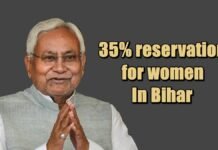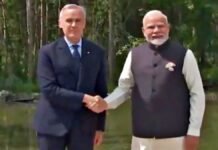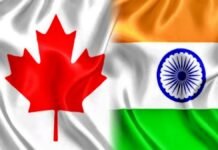
Surrey: A Sikh activist who supports the Khalistan movement, a separatist campaign that seeks to create a Sikh homeland in India, was targeted by a shooting at his home in South Surrey on Thursday night. The incident has sparked allegations of Indian involvement and raised concerns over the security of the Sikh community in Canada.
The Royal Canadian Mounted Police (RCMP) said they received a report of shots fired at a residence in the 2800 block of 154 Street around 1:21 a.m. on Friday. They found evidence of a shooting at the scene, but no injuries were reported. The RCMP did not identify the owner of the residence, but local media and community members said it belonged to Simranjeet Singh, a friend, and associate of Hardeep Singh Nijjar, a prominent Khalistani leader who was killed in Surrey in June last year.
Simranjeet Singh is a vocal advocate for the Khalistan cause, a movement that demands a separate Sikh state in the Punjab region of India. He was involved in organizing a pro-Khalistan protest outside the Indian Consulate in Vancouver on January 26, coinciding with India’s Republic Day. He also participated in a so-called “referendum” on Khalistan conducted by Sikhs for Justice (SFJ), a pro-Khalistan organization, in Brampton, Ontario, in September last year.
Simranjeet Singh believes that the shooting at his home was an attempt to intimidate him and silence his activism by the Indian state or its agents. Moninder Singh, the spokesperson for the British Columbia Gurdwaras Council, told CBC News that Simranjeet Singh “feels like this is the Indian state, or their actors, that are playing their part here to kind of scare them off from … the activism work that he’s doing.”
The Indian government has denied any role in the shooting or in the killing of Hardeep Singh Nijjar, who was designated as a terrorist by India for allegedly leading a militant group called the Khalistan Tiger Force. India has accused Canada of harboring Khalistani extremists and allowing anti-India activities on its soil. India has also demanded that Canada provide solid proof of its allegations of Indian involvement in Nijjar’s death.
The shooting incident has added to the strain in the bilateral relations between India and Canada, which have been tense since Prime Minister Justin Trudeau publicly accused India of being behind Nijjar’s killing in September last year. Trudeau said that Ottawa was “actively pursuing credible allegations” that Indian agents were potentially linked to the killing, based on intelligence reports and communications intercepted by Canadian authorities.
India rejected Trudeau’s allegations as baseless and absurd and accused him of interfering in its internal affairs and undermining its sovereignty and territorial integrity. India also summoned Canada’s High Commissioner and lodged a strong protest over Trudeau’s remarks. India said that Trudeau’s statement was an “unwarranted and unacceptable” interference in its internal affairs and a “serious threat” to its national security and unity.
Since then, India and Canada have been trying to mend their ties and resolve their differences through diplomatic channels. Jody Thomas, Trudeau’s former national security adviser, said last month that India was cooperating with Canada and that relations between the two countries were improving after the tensions over Nijjar’s killing. Thomas said that her discussions with her counterpart in India had been fruitful and that they had moved things forward.

However, the shooting at Simranjeet Singh’s home has reignited controversy and raised questions over the safety of the Sikh community in Canada, which has a significant presence and influence in the country. The Sikh community has been divided over the issue of Khalistan, with some supporting the separatist movement and others opposing it. The Khalistan movement has also been a source of friction between Canada and India, as India views it as a threat to its national security and unity, while Canada respects the right to peaceful expression and dissent.




















































